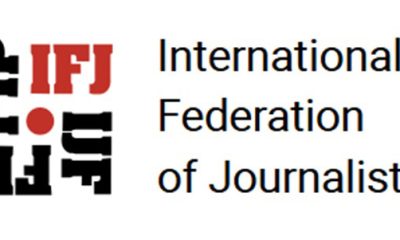Business
Major private companies call for immediate solution to economic crisis
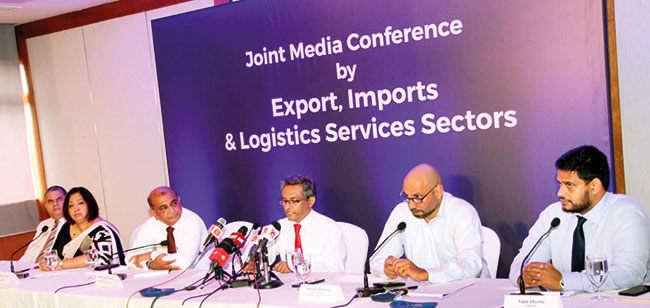
By Steve A. Morrell
Some of the country’s major private sector companies yesterday called for an immediate solution to the country’s current economic crisis.
Some 23 companies, representing numerous sectors, stressed this need yesterday at a press conference held at the Jaic Hilton Colombo Residences. They account for approximately 50 per cent of the working population of the country, besides producing goods and services to the tune of USD 16.8 billion yearly.
At the head table were, Rohan Masakorale, Yohan Lawrence, Jayantha Karunaratne, Sandra De Zoysa, Russel Juriansz and Talet Sharma.
The consensus which emerged from discussions among these companies was that, rather than dwell on negatives, the task of reviving the economy has to be gone ahead with as a priority.
The companies said the support of the media too was essential to solve the crisis. It was imperative that the private sector and the media unite their resources to get over the economic debacle faced by the country.
Sections of the press expressed the view that the new Central Bank Governor was better equipped to handle the economic debacle rather than the previous Governor who resorted to printing money wihich had no relevance to production.
The press posed the question whether the President had read the contents of a letter that was submitted by the companies to him on the economic situation of the country. Replying to this question Rohan Masakorale said the companies present could not say if he had read the letter or not, but it was now of importance to note that no comment on the letter was forthcoming from neither the President nor his advisors.
Views were also expressed that Sri Lanka’s request to the IMF for financial assistance and advice should have been made long before the current serious situation emerged.
Jayantha Karunaratne, representing the Tea Exporters Association, said the tea industry, now over 150 years in existence, was faced with a crisis which affected in the main the smallholders of the sector who were responsible for about 75 per cent of tea production. He said Sri Lanka was responsible for 5 per cent of global tea production. Unless the government takes positive action, we would lose the global tea market.
Russel Juriansz said the IMF and the World Bank were of importance to Sri Lanka, based on their effective financial management some years ago. Yohan Lawrence representing the Joint Apparel Association Forum and Talet Sharma along with Sandra de Zoysa also spoke.
Business
HNB Finance bags 2 CMA Reporting Awards 2025

HNB Finance PLC has been honoured with two prestigious accolades at the CMA Excellence in Integrated Reporting Awards 2025, reaffirming the company’s commitment to transparency, good governance, and integrated business performance.
At this year’s ceremony, HNB Finance PLC was awarded Second Runner Up – joint in the category of “Best Integrated Report , Finance and Leasing Sector”, and also received a Merit Award in recognition of its continued efforts to enhance reporting quality and strengthen stakeholder communication.
The CMA Excellence in Integrated Reporting Awards, organised annually by the Institute of Certified Management Accountants (CMA) of Sri Lanka, acknowledge organisations that demonstrate superior financial reporting standards aligned with global best practices. Winners are assessed on key criteria such as financial performance and strategic management, corporate governance and compliance, innovation and digital transformation, sustainability practices, and professional excellence.
Chaminda Prabhath, Managing Director/CEO of HNB Finance PLC, commented on the recognition, “These awards reaffirm our commitment to upholding the highest standards of integrated reporting and transparent financial disclosure. At HNB Finance, we remain focused on delivering sustainable long-term value through robust governance frameworks, prudent financial management, and continuous innovation. The acknowledgement by CMA Sri Lanka reflects the disciplined efforts of our teams across the organization and motivates us to further enhance our reporting quality, strengthen ESG integration, and reinforce our stakeholder centric approach.”
Business
ComBank joins ‘Liya Shakthi’ scheme to further empower women-led enterprises
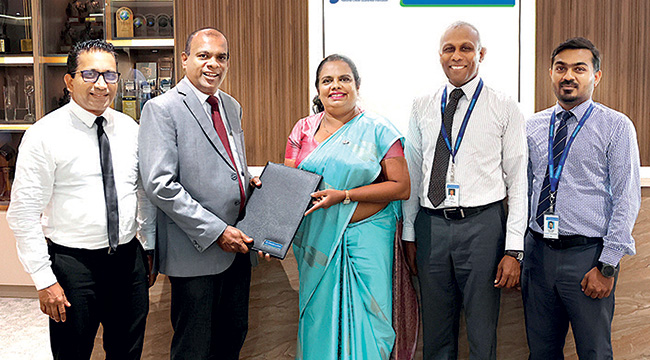
The Commercial Bank of Ceylon has reaffirmed its long-standing commitment to advancing women’s empowerment and financial inclusion, by partnering with the National Credit Guarantee Institution Limited (NCGIL) as a Participating Shareholder Institution (PSI) in the newly introduced ‘Liya Shakthi’ credit guarantee scheme, designed to support women-led enterprises across Sri Lanka.
The operational launch of the scheme was marked by the handover of the first loan registration at Commercial Bank’s Head Office recently, symbolising a key step in broadening access to finance for women entrepreneurs.
Representing Commercial Bank at the event were Mithila Shyamini, Assistant General Manager – Personal Banking, Malika De Silva, Senior Manager – Development Credit Department, and Chathura Dilshan, Executive Officer of the Department. The National Credit Guarantee Institution was represented by Jude Fernando, Chief Executive Officer, and Eranjana Chandradasa, Manager-Guarantee Administration.
‘Liya Shakthi’ is a credit guarantee product introduced by the NCGIL to facilitate greater access to financing for women-led Micro, Small, and Medium Enterprises (MSMEs) that possess viable business models and sound repayment capacity but lack adequate collateral to secure traditional bank loans. Through NCGIL’s credit guarantee mechanism, Commercial Bank will be able to extend credit to a wider segment of women entrepreneurs, furthering its mission to drive inclusive economic growth.
Business
Prima Group Sri Lanka supports national flood relief efforts with over Rs. 300 Mn in dry rations
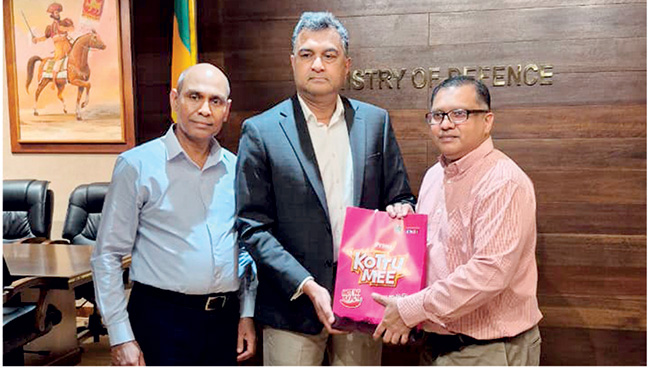
Prima Group Sri Lanka has pledged assistance valued at over Rs. 300 million, providing essential Prima food products to support communities affected by the recent floods across the island. This relief initiative is being coordinated through the Ministry of Defence to ensure the timely and effective distribution of aid to impacted families.
As part of this commitment, Prima Group Sri Lanka donated a significant stock of Prima dry rations to the Government of Sri Lanka on 30 November. The consignment will be distributed across multiple severely impacted districts. These supplies will support families facing disruptions to daily life, ensuring they receive assistance as recovery efforts continue.
The handover took place at the Ministry, where the donation was received by the Secretary of Defence, Air Vice Marshal (Retired) Sampath Thuyacontha. Representing Prima Group Sri Lanka, Sajith Gunaratne – General Manager of Ceylon Agro Industries Limited, and Sanjeeva Perera – General Manager of Ceylon Grain Elevators PLC, officially presented the donation.
Prima Group has been standing with the people of Sri Lanka for over 40 years, and this donation reflects its broader commitment to the nation during challenging times. As relief operations continue across the island, the company remains focused on helping families rebuild their lives and supporting the ongoing recovery process in collaboration with the Government Authorities.
-
News4 days ago
Lunuwila tragedy not caused by those videoing Bell 212: SLAF
-

 News3 days ago
News3 days agoLevel III landslide early warning continue to be in force in the districts of Kandy, Kegalle, Kurunegala and Matale
-

 Latest News5 days ago
Latest News5 days agoLevel III landslide early warnings issued to the districts of Badulla, Kandy, Kegalle, Kurunegala, Matale and Nuwara-Eliya
-
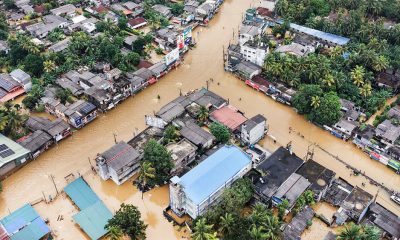
 Features5 days ago
Features5 days agoDitwah: An unusual cyclone
-

 Latest News6 days ago
Latest News6 days agoUpdated Payment Instructions for Disaster Relief Contributions
-

 News1 day ago
News1 day agoA 6th Year Accolade: The Eternal Opulence of My Fair Lady
-

 News1 day ago
News1 day agoCPC delegation meets JVP for talks on disaster response
-

 Latest News6 days ago
Latest News6 days agoLandslide Early Warnings issued to the Districts of Badulla, Colombo, Gampaha, Kalutara, Kandy, Kegalle, Kurunegala, Matale, Moneragala, Nuwara Eliya and Ratnapura










